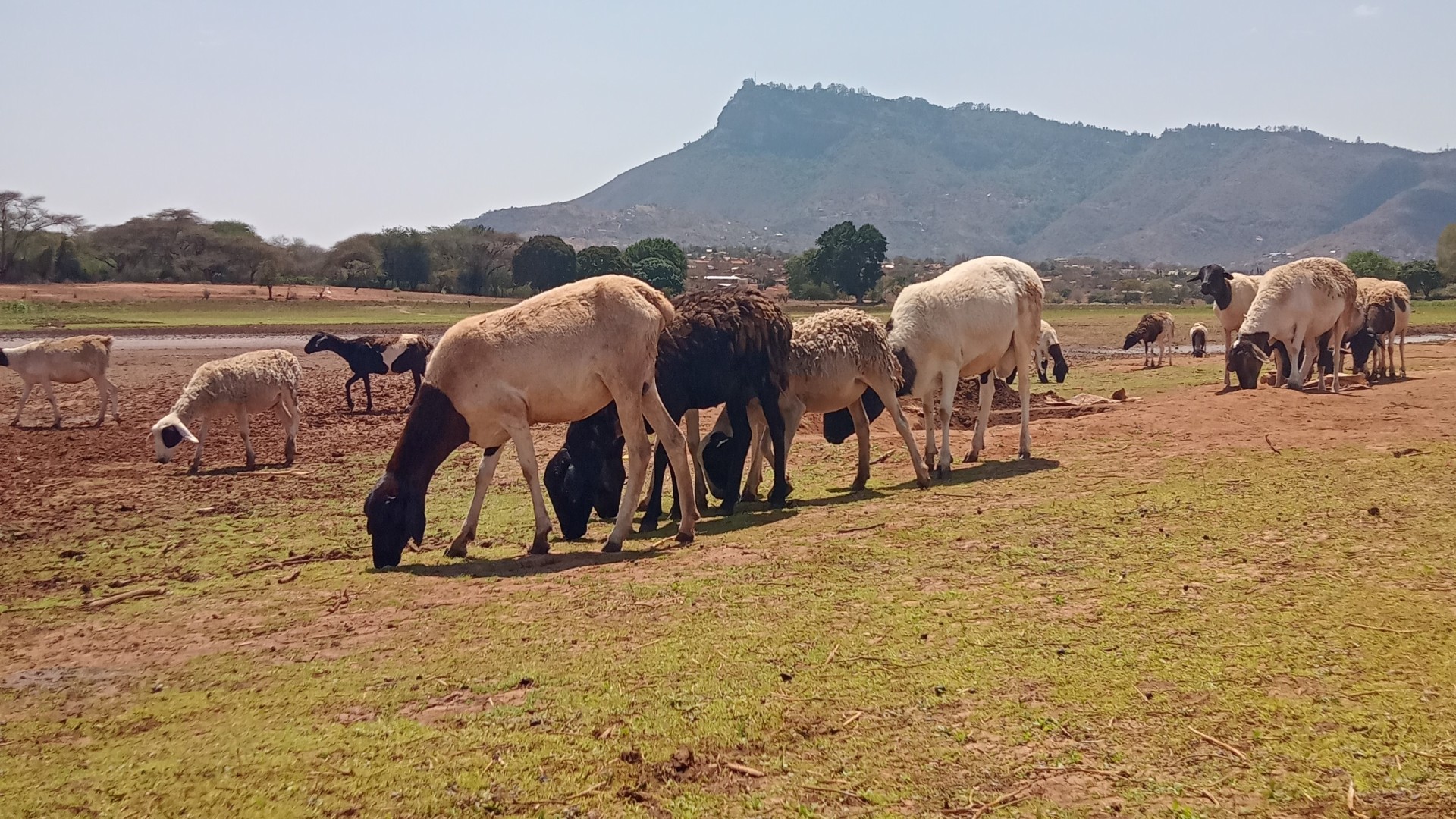On a visit to Manoa, Kamtonga, and Mkuki in the lower Mwatate sub-county and Kasigau at the extreme south of Voi sub-county; one is greeted by a sight of bare shrubs and grave stillness in the August scorching heat.
In that bareness, herds of black-headed Persia and Doper sheep could be seen with their heads low on the ground rummaging for small dried leaves to make for a day’s meal.
A local herder, Fanuel Mwabili, confided that the spotting of the black-headed sheep in almost every part of the dry areas of Mwatate and Voi sub-counties is not by coincidence.
“It’s not by coincidence but by design that herders are going for the black-headed sheep in the dry regions of our county,” said Mwabili.
Mwabili said that the black-headed Persia and Doper Sheep is a hardy breed and could withstand the tormenting drought that has for months in a row persisted in the lowlands of Taita Taveta and other Arid and Semi-Arid Lands (ASAL) across the country.
“These sheep breeds are well adapted to the dry conditions and can survive for months with no rain in this area. We’re thankful that we still have some flock of livestock thanks to these sheep,” added Mwabili.
A majority of Taita Taveta County received below-average rainfall between March and June, which is considered to be the long rain season. This trend was a continuation of poor rains witnessed for the better part of both the long and short rain seasons in 2021.
“We’ve had depressed rains in this county for three years in a row. 2021 was the worst of them all and 2022 seems to be following the same script of near total absence of rains,” a July 2022 statement from the National Drought Management Authority (NDMA) – Taita Taveta said.
During the current and past dry seasons, the county’s livestock department has reported increasing numbers of livestock death.
“Herders have had tough luck with the rains for three years now and at the peak of dry seasons we’re seeing heightened numbers of livestock deaths,” the NDMA report added.
On its part, the livestock department has been consistently urging herders to sell their livestock in anticipation of drought and only keep a few heads of animals that they can fend for.
“We’ve taken the initiative to advise local herders to sell their livestock on the onset of the dry season and only remain with a number they can adequately feed when the dry seasons’ peak,” said Amos Mwasi, livestock officer for Taita Sub-county.
The choice for the black-headed Persia and Doper sheep is not a gamble by farmers as it is not only supported by research but has also been experimented on in the county’s three breeding sites of Bachuma Livestock Multiplication center, Bachuma Sheep & Goat Station, and Mwatate Livestock breeding Center.
“The widespread rearing of black-headed Persia and Doper sheep is not an accident but an effort supported by the national and county governments to breed quality livestock, preserve superior sheep and goat breeds, and cushion local herders from food insecurity,” said Martin Luther Oyindo, Taita Taveta County Director for Livestock.
According to Oyindo, the Black-headed Persia and Doper sheep are well adapted to hot and dry conditions, breed fast, are resistant to pests and diseases, eat minimal food, and gain weight fast; traits that make them suitable for ASALs.
“The Persia and Doper Sheep have a combination of traits that perfectly suit them for the harsh climate conditions in ASALs. They breed twice a year, eat 2-3kg per day, require little water, resist most of the pests and diseases, and gain weight fast,” said Mr. Oyindo.
In a year, a newborn black-headed Persia or Doper sheep can gain up to 25kgs which is adequate for meat according to research by the county’s livestock department.
Oyindo said that local herders could easily maximize the advantages of the hardy sheep and goat breeds to not only avert drought but also ensure food security through the sale of their animals for prime prices.
“With such advantages of the hardy sheep and goats, local farmers can sustainably keep sizeable flocks even during drought and easily convert them to money to buy food and other household items,” added Oyindo.
For Mwabili and his fellow herders, selling their cattle and in their place buying the hardy black-headed Maasai sheep has been a blessing and a singular reason why they still have a significant flock of livestock deep into the dry season.
“We heeded the advice of livestock officers and sold our cattle and instead bought sheep. The shift in gears has paid off since we still have flocks of animals and we can sell them to feed our families,” said Mwabili.
The tide of drought in Taita Taveta is not about to ease as per the coastal meteorological report for July. The report stated that the county’s vegetation greenness fell below the normal levels for May, June, and July.
“Vegetation greenness for May, June, and July was at 23.1 Vegetation Cover Index (VCI), a significant fall from the normal 35 VCI,” stated the report.
On livestock health, the report indicated that the body conditions of sheep and goats were healthy, while cattle were fair but cautioned farmers with large flocks of animals about worse times in August.


